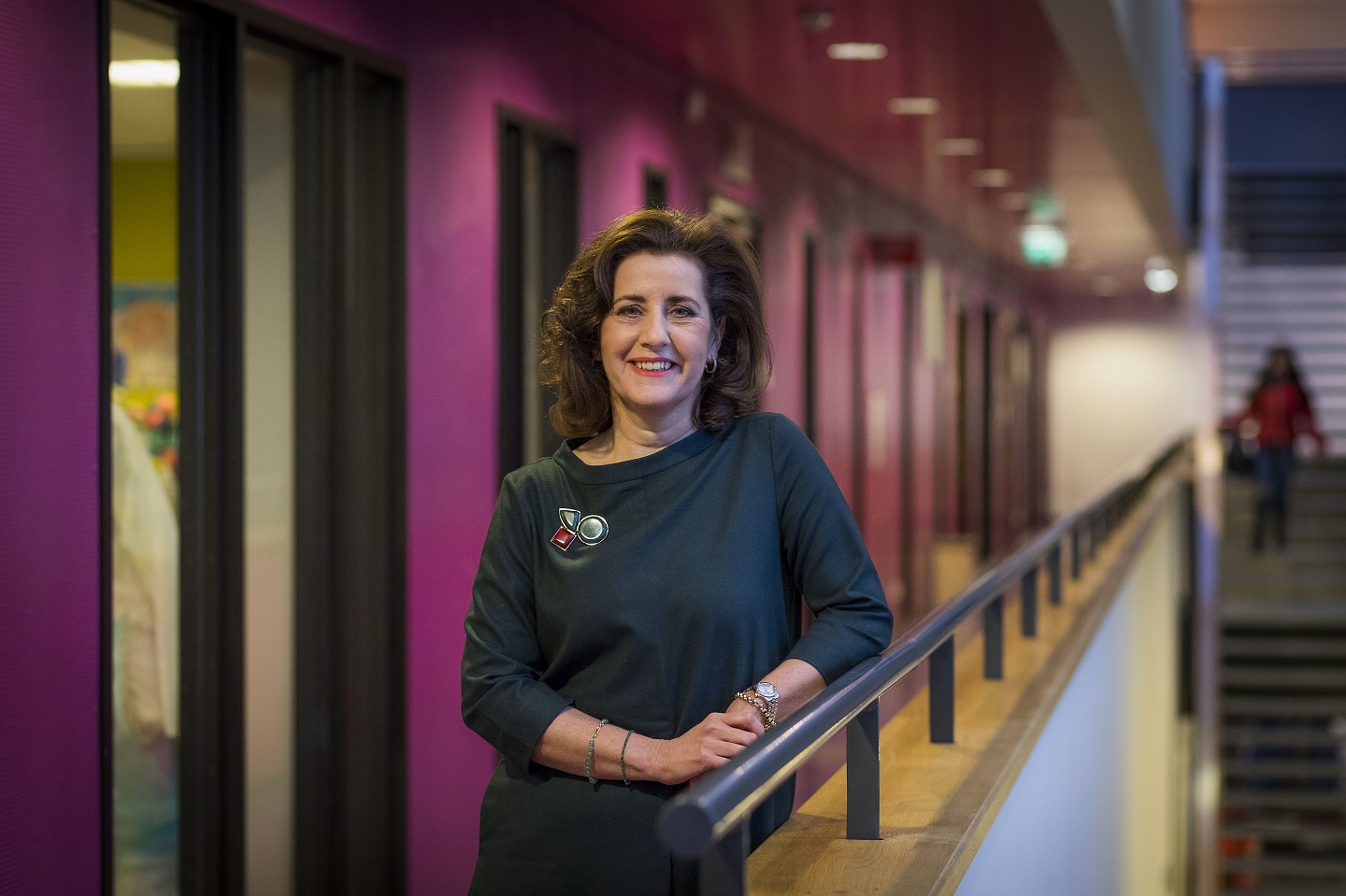While Professor of Law Paul Zoontjens asserts that TU Delft may not refuse admission to students from outside the EU, the Education Minister, Ingrid van Engelshoven, will not uphold the law of equal treatment. “Needs must”.
Ingrid van Engelshoven, de allereerste onderwijsminister van D66: “Er is geen sector die er zoveel geld bij krijgt als het onderwijs.” (Foto: Rijksoverheid)
This is what the Minister said yesterday evening at a meeting in the Aula in response to Zoontjens’ statement that the stop on admitting students from outside the European Union ‘is not allowed’. In support of the stop, Executive Board chairman Tim van der Hagen added that he did not want to ask non-EU students for higher fees if the number of students is higher than the course can take. This would only be detrimental to the quality of education.
This argument, according to Zoontjens, is ‘irrelevant’. “You simply may not discriminate and in this case the distinction is made on the basis of the nationality of students from outside the EU. This is prohibited by law under the Equal Treatment Act.
The Minister said that Zoontjens was right. “At the moment, this is contravening the law. I thoroughly understand TU Delft’s dilemma. We have discussed it and I said that we would not uphold the Equal Treatment Act. If you do not halt the flow, and there is no numerus fixus, you simply cannot handle the numbers. If TU Delft had predicted this, it would probably have set a numerus fixus.”
The Minister will submit a letter to the House of Representatives in June about internationalisation in higher education. “I want to make sure that universities have the tools to have balanced international classrooms.” When universities ask her about these tools, she says “If you choose to have English medium teaching and international classrooms, there are currently no tools to create that balance. And at TU Delft, the number of applications went through the roof. I can accept TU Delft’s decision. After all, I am a lawyer.”
But shouldn’t ministers – especially if they are lawyers – stick to the law? “Laws and rules are not black and white in practice,” answered Van Engelshoven. “Laws must always be applied. But even if you are complying with the law, you must always be aware of the dilemmas that occur in practice. Needs must. Who benefits if there are so many students that the quality of education drops?”
Previously, Professor Zoontjens had said that the Minister had nothing to do with this. He believes that the relevant authority is the court and that he expected the court to say that rejected students were right. Van Engelshoven recognises that students who turn to the courts “could win”, but this may not always be detrimental to TU Delft. “Judges are also reasonable and fair,” she says.
What TU Delft could do to avoid the enormous flood of non-EU students, according to Zoontjens, is to provide Dutch medium education. “This is very effective. If you offer English medium teaching and produce studies that can be used all over the world – as is the case at technical universities – you should not be surprised if many international students apply.”
Do you have a question or comment about this article?
c.j.c.vanuffelen@tudelft.nl


Comments are closed.